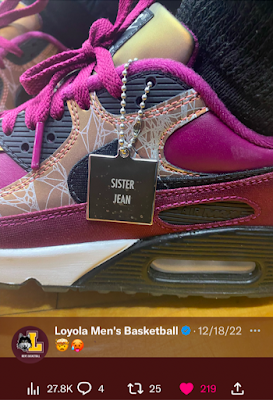Max Weber and Symbolic Interaction Paradigm
Max Weber (pronounced VAY-ber) studied the development of capitalism in European countries. He found that countries that became more Protestant also became more capitalist. This is peculiar because religion and economics seem to be separate. But Protestants held shared meaning with each other about their wealth and finance. They saw living within their means and investing their money as signs that they were living righteously within their Christian beliefs. This created an economy that was based on investment. It led to the creation and expansion of capitalism, investing profit to make even more profit. It might seem strange for religion to be connected to the economy, but in their interaction with each other, it was real for them.
The development of the Symbolic Interactionist paradigm
Building off of Weber's work, two sociologists created a third paradigm for which sociologists view the world. Weber showed symbolic meaning in the Protestants' lives and in their everyday interaction with other people. Stemming from Weber's work, George Mead, W. I. Thomas and Herbert Blumer focused on the shared meaning in everyday life between people. This paradigm became known as Symbolic Interaction. It is more focused on face-to-face interaction, or small groups, as opposed to large-scale institutions. Much of our interaction with each other holds symbolic meaning to us. The words we use, our body language, our clothes all hold symbolic meaning for us. They convey an identity we have to the world.
The development of the Symbolic Interactionist paradigm
Building off of Weber's work, two sociologists created a third paradigm for which sociologists view the world. Weber showed symbolic meaning in the Protestants' lives and in their everyday interaction with other people. Stemming from Weber's work, George Mead, W. I. Thomas and Herbert Blumer focused on the shared meaning in everyday life between people. This paradigm became known as Symbolic Interaction. It is more focused on face-to-face interaction, or small groups, as opposed to large-scale institutions. Much of our interaction with each other holds symbolic meaning to us. The words we use, our body language, our clothes all hold symbolic meaning for us. They convey an identity we have to the world.
How can you use Weber's Symbolic Interaction paradigm to analyze our lifeboat simulation?
How can you apply Weber's Symbolic Interaction paradigm to college? What is the shared meaning that college holds?
Apply symbolic interaction to Loyola -
What does this scarf represent? How did it come to be that way?
- "You let your whole team down!"
- Wolf hands on free-throw
What is the shared meaning?
Symbolic Interaction paradigm and names
An example of Symbolic Interaction can be seen through names. A name isn’t just a random set of syllables. Names have symbolic meanings that are shared among people, even strangers, within a society. For example, see the multiple examples below about the ways that names can have shared meaning.
An example of Symbolic Interaction can be seen through names. A name isn’t just a random set of syllables. Names have symbolic meanings that are shared among people, even strangers, within a society. For example, see the multiple examples below about the ways that names can have shared meaning.
Names hold important meanings that we might realize at first.
Read "Conventional Wisdom Tells Us...What's in a Name? That which we call a Rose by Any Other Name Would Smell as Sweet" from sociologists Cerulo and Ruane.According to the authors of Conventional Wisdom Tells Us..., what are some examples of the different meanings that names hold?What are some ways that Cerulo and Ruane show these meanings affect people?
Baby Names follow trends
Some students will say that their parents just chose the name because they liked it. But closer research reveals that for many names that parents seemed to "just like," there was a larger meaning behind why parents liked the name. A respected sociologist from Harvard named Stanley Lieberson studied trends and fashions. He used the Social Security Names database to study how names spread in popularity similar to how fashion spreads. You can read this NY Times article (or download it here) about the details of what Lieberson found, but in short, the naming of new babies is not simply personal:
- Name choices, like clothing choices, reflect the desire to be different, but not too different.
- Names branch off of each other with similar suffixes or prefixes
- Names reflect societal patterns like immigration patterns
- Names are changing more frequently than they used to reflect a stronger desire to be different.
Try your own research with the SSA Baby Name Database.
Notice that the data shows that names go in and out of style, even if we don't notice it. For example, my parents named me Christopher, but they just thought that they liked the name. Looking at the data, it is now evident that Christopher was the second most popular name that year!
Try find examples of any of Lieberson's finds in the SSA Baby Name Database? Give a specific example.
Names also hold shared meaning because culture assigns meanings to ideas
For more on names and symbolic meanings, you can listen to the Freakonomics podcast episode by Wells, Katharine. How Much Does Your Name Matter? Freakonomics Radio Podcast. April 8, 2013.The episode draws from a Freakonomics chapter called “A Roshanda By Any Other Name”and includes a good bit of new research on the power of names. It opens with a conversation with NYU sociologist Dalton Conley and his two children, E and Yo. Their names are a bit of an experiment. Indeed, there is some evidence that a name can influence how a child performs in school and even her career opportunities. There’s also the fact that different groups of parents — blacks and whites, for instance — have different naming preferences. Stephen Dubner talks to Harvard professor Latanya Sweeney about a mysterious discrepancy in Google ads for Instant Checkmate, a company that sells public records. Sweeney found that searching for people with distinctively black names was 25% more likely to produce an ad suggesting the person had an arrest record – regardless of whether that person had ever been arrested. Names do, however, reveal a lot about the people doing the naming. Eric Oliver, a political scientist at the University of Chicago, talks about his new research (with co-authors Thomas Wood and Alexandra Bass) that looks at how children’s names are influenced by their parents’ political ideology.If names do affect their bearers' chance of success, it may not always be because of the reactions they cause in other people (the "looking-glass self"), they might also be because of "implicit egotism", the positive feelings we each have about ourselves. Brett Pelham cites the concept in explaining his finding that individuals called Virginia, Mildred, Jack and Philip proliferate in Virginia, Milwaukee, Jacksonville and Philadelphia - he believes they are drawn to live there.
Another intriguing 2007 paper, entitled Moniker Maladies, found that people's fondness for the initials of their names could get in the way of success. Leif Nelson and Joseph Simmons analysed almost a century of baseball strikeouts and found that hitters with the initial K had a higher strike-out rate ("K" denotes a strike-out in baseball). They also found that graduate students with the initials C and D had a slightly lower grade point average than A and B students, and A and B applicants to law school were more likely to go to better colleges.
Branding as Shared Meaning
Think about the meaning that people share about the things below. What meaning do they hold? Who shares the meaning? How does that meaning influence our reactions? How does the meaning get reinforced and/or re-interpreted by society?
Look at the shoes above from StockX. The prices listed are the prices people bid on the shoes (not the asking price). In other words those are prices that people are willing to pay!
Why would people pay that much? What does owning these shoes mean/represent?
How did this meaning come to be? Look at the following sites that explain how the creation of meaning happened to the Air Force Ones:
- History from Grailed
- History from Complex
- From Business Insider How Nike Defined Cool
- MJ and Nike
- Pop Culture and Nike
- Nelly's Airforce Ones music video
Do you understand how sociologists view the world through a symbolic interaction perspective? Any questions about that paradigm?
Apply
Applying Symbolic Interaction to your demographic sheet
Individually:
Look at your answer for what you are proud of and what your various goals are. Choose one of these answers and think about the larger meaning behind your answer. Why are you proud of that or why is it a goal? What does it symbolize to you and how do you hope others view it?
Small Group:
Compare your answer above to those in your small group. What similarities emerge? Do others in your group agree with your answer for number 1 above? (In other words, do they share the same meaning/understanding as you about those achievements/goals?)
Recommended Reading:
https://openstax.org/books/introduction-sociology-3e/pages/1-3-theoretical-perspectives-in-sociology









No comments:
Post a Comment